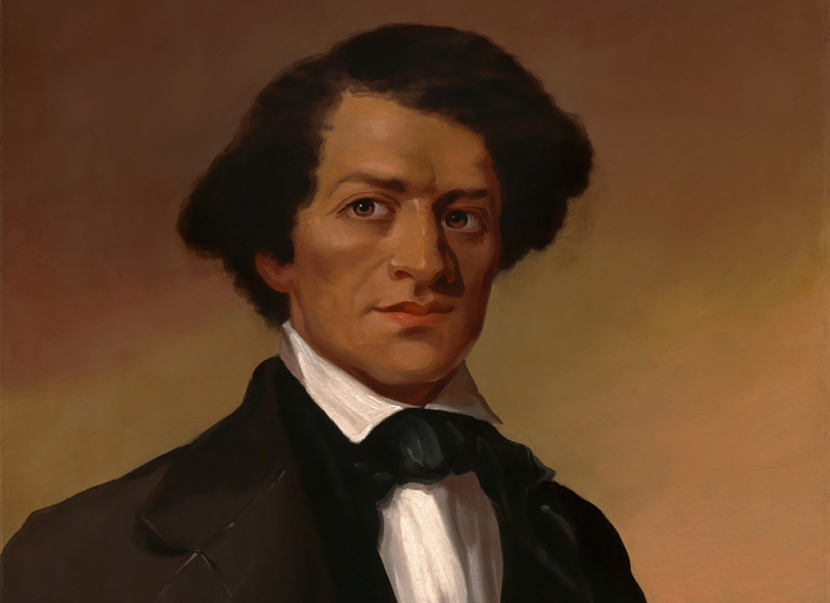Frederick Douglass (1818–1895)
From Frederick Douglass: Speeches & Writings

After his escape from slavery, Frederick Douglass found work in a brass foundry in New Bedford, Massachusetts. “The three years of my freedom had been spent in the hard school of adversity,” he recalled. “My hands seemed to be furnished with something like a leather coating, and I had marked out for myself a life of rough labor … as a means of supporting my family and rearing my children.” The hours were long and the work was exhausting, leaving him little time for “mental improvement.”
When Douglass attended an anti-slavery convention in August 1841, however, everything changed. “Here opened for me a new life—a life for which I had had no preparation.” At the meeting, he was urged to speak to the entire gathering. “It was a severe cross, and I took it up reluctantly,” he wrote. “The truth was, I felt myself a slave, and the idea of speaking to white people weighed me down. I spoke but a few moments, when I felt a degree of freedom, and said what I desired with considerable ease.” His speech made such an impression that leading abolitionists urged him to travel throughout the Northeast that fall on the lecture circuit—for which he would be paid. For the remainder of his life, he would support himself as a lecturer, author, and newspaper editor.
Unfortunately, the impromptu speech Douglass gave at the convention did not survive in any form—but we do have an eyewitness report detailing the contents of an address he delivered two months later, during his first tour on the lecture circuit. That speech, “I Have Come to Tell You Something About Slavery,” is the opening selection in the just-published Library of America volume containing more than 100 speeches and articles written by Douglass during his fifty-year career, and we present it as our Story of the Week selection.



